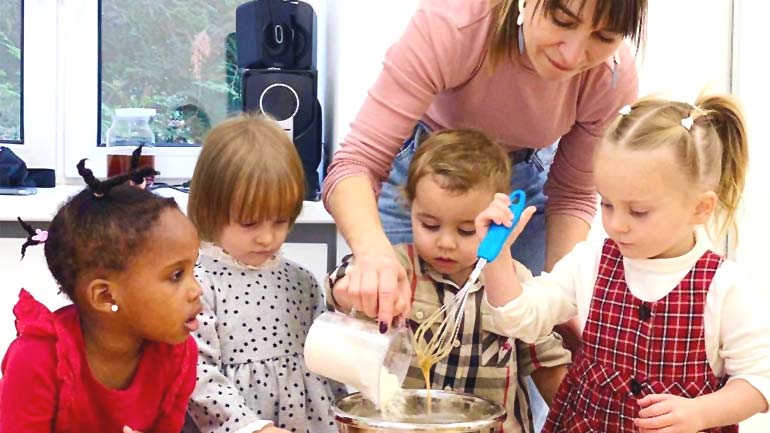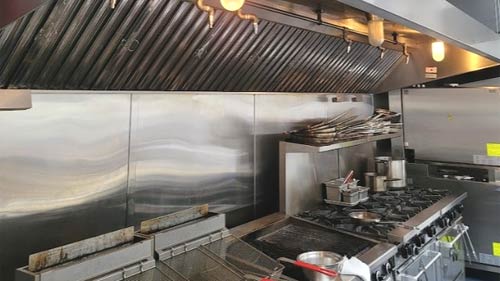
Cooking is a skill that is both therapeutic, and enjoyable. It’s also crucial if you want a strong foundation for living a healthy lifestyle. There are plenty of excellent reasons for picking up cooking. Not only it offers a better understanding of the food that we put into our bodies, but it also cultivates a sense of independence. This is among the many reasons why plenty of kid’s camps are sprouting in the schools. With such camps, kids can broaden their palates and experience the different foods from other cultures around the globe.
But as we all know, the kitchen can be a dangerous place. This is especially true for kids in which their safety awareness is lower compared to adults. It’s easy to get injuries from a myriad of sources like burns from hot items, scalding hot water injuries, and cuts from knives and other kitchen equipment. Hence, learning about kitchen safety for kids is paramount.
In this article, you will learn the best ten kitchen safety tips for kids. Being safe reduces the chance of having a negative experience, and you’ll be left with all of the positive experiences and benefits of cooking.
1. Adult Supervision
Perhaps the most important kitchen safety tip for kids is to always ask an adult before doing anything. Does the kid want to do some cooking? Ask an adult first. Is it okay to do a specific activity in the kitchen? Ask an adult first. This is especially true for kids that are under the age of twelve in which simple actions, like cooking or chopping, can potentially be very hazardous.
2. Good Hygiene
Since food is taken into the body, it is essential always to practice good hygiene. By doing so, it minimizes the risk of food poisoning or other similar complications. The kids should develop the habit of handwashing before and after any food preparation. The kitchen utensils should be cleaned before use, and the surfaces should be sterilized using an antibacterial solution.
3. Dangers Of Cross-Contamination
Food poisoning is not a pleasant experience. In most cases, it’s the bacteria in the meat that will cause food poisoning. It’s the reason why the meat should be thoroughly cooked. The kids should also be aware of the dangers of cross-contamination, which means the bacteria from the meat could transfer to other food items. Hence, the surfaces for preparing meat and other food items should not be the same to minimize the chances of cross-contamination.
4. Be Alert For Common Kitchen Dangers
No one can predict all of the kitchen dangers and accidents that could happen. However, it’s easier to predict the common ones, and safety precautions should be set in place to prevent such accidents. For example, always be aware for the hot spots or areas while in the kitchen.
The handles of the pot should always be facing inwards to minimize the chance of being accidentally knocked over. Hot oil and steam are sources of scarring and scalding, so close adult supervision is required when kids are handling such potential hazards. Moving hot pans from one place to another should be done by an adult.
5. Wear Protective Clothing
Wearing protective clothing while in the kitchen is a must. It’s easy to get burnt when lifting or holding hot objects such as pans and pots. Hence, kitchen mitts or gloves should be worn when doing such activities. It’s also highly advisable to wear appropriate clothing and an apron to provide an additional layer of protection.
6. Always Respect Knives
You can’t have a kitchen without a knife. While knives are handy, but they can also be very dangerous. For the inexperienced, it’s easy to get cuts from a sharp knife. Hence, kids should be taught how to handle and properly use a knife. Even after all that teaching and training, it’s always best to have adult supervision when a child is slicing or chopping.
7. Learning To Ask For Help
One of the important things to learn for kids when working in the kitchen is to ask an adult if they don’t understand something. The smarter ones will typically do some experimenting rather than asking an adult’s help. While this is an admirable trait, the kitchen is not the best place to do some experimentation for the kids as it can be dangerous. Hence, the kids should be instructed to ask for an adult’s help if they are stuck with something.
8. Dealing With Mess And Spills
Another essential kitchen rule that must be implemented is the immediate wiping and cleaning of mess and spills. Cleaning spills and messes immediately can minimize staining, which will require more effort to clean. It also prevents injuries due to slipping. Furthermore, no one wants to see a messy kitchen.
9. Food Storage
One fundamental information that every kid in the kitchen should know is that warm temperatures pave the way to bacterial proliferation. Hence, it’s always better to keep food items refrigerated to prevent spoiling. It’s also the reason why you don’t want to put any hot or warm food into the refrigerator. Because, that would cause the internal temperature of the refrigerator to be warmer, which may cause spoiling of the food items stored inside.
10. First Aid
Learning basic first aid is another skill that every kid should learn if he or she is interested in working in the kitchen. As mentioned before, the kitchen can be a dangerous place, and it’s likely that an accident will happen in the future. Hence, a kid should be prepared on what to do when such events happen, and this is where learning basic first aid comes into play. At the very least, the child should learn where the basic first aid kit is stored. Learning how to bandage or apply antiseptic cream is also important.
There’s a myriad of reasons why it’s a good idea to send your kid to a culinary or cooking school. However, sending to any school without doing research is also a bad idea. As a parent, you’d want to make sure that the school takes safety very carefully.
At the very least, the kids should learn, follow and implement basic safety precautions and guidelines. Also, its imperative that an adult is supervising the kids at all times. Remember, an ounce of prevention is better than a pound of cure.




